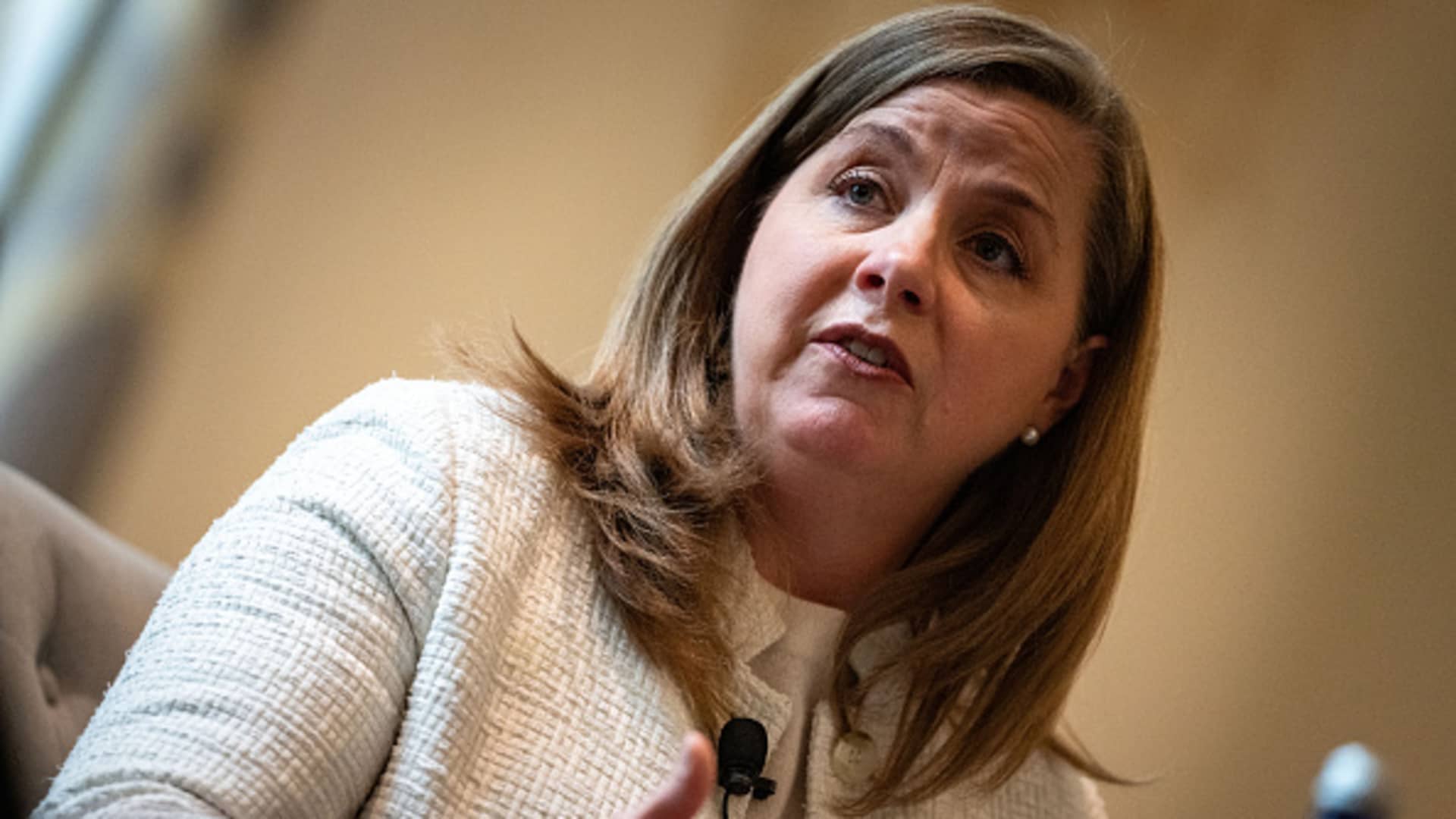Federal Reserve Governor Michelle Bowman said Thursday she supported the recent interest rate cuts but doesn’t see the need to go any further.
In a speech to bankers in California that was part monetary policy, part regulation, Bowman said concerns she has that inflation has held “uncomfortably above” the Fed’s 2% goal lead her to believe that the quarter percentage point reduction in December should be the last one for the current cycle.
“I supported the December policy action because, in my view, it represented the [Federal Open Market Committee’s] final step in the policy recalibration phase,” the central banker said in prepared remarks. Bowman added that the current policy rate is near what she thinks of as “neutral” that neither supports nor restrains growth.
Despite the progress that has been made, there are “upside risks to inflation,” Bowman added. The Fed’s preferred inflation gauge showed a rate of 2.4% in November but was at 2.8% when excluding food and energy, a core measure that officials see as a better long-run indicator.
“The rate of inflation declined significantly in 2023, but this progress appears to have stalled last year with core inflation still uncomfortably above the Committee’s 2 percent goal,” Bowman added.
The remarks come the day after the FOMC released minutes from the Dec. 17-18 meeting that showed other members also were concerned with how inflation is running, though most expressed confidence it will drift back towards the 2%, eventually getting there in 2027. The Fed sliced a full percentage point off its key borrowing rate from September through December.
In fact, other Fed speakers this week provided views contrary to that of Bowman, who is generally regarded as one of the committee’s more hawkish members, meaning she prefers a more aggressive approach to controlling inflation that includes higher interest rates.
In a speech delivered Wednesday in Paris, Governor Christopher Waller had a more optimistic take on inflation, saying that imputed, or estimated, prices that feed into inflation data are keeping rates high, while observed prices are showing moderation. He expects “further reductions will be appropriate” in the Fed’s main policy rate, which currently sits in a range between 4.25%-4.5%.
Earlier Thursday, regional presidents Susan Collins of Boston and Patrick Harker of Philadelphia both expressed confidence the Fed will be able to lower rates this year, if it a slower pace than previously thought. The FOMC at the December meeting priced in the equivalent of two quarter-point cuts this year, as opposed to the four expected at the the September meeting.
Still, as a governor Bowman is a permanent voter on the FOMC and will get a say this year on policy. She is also considered one of the favorites to be named the vice chair of supervision for the banking industry after President-elect Donald Trump takes office later this month.
Speaking of the incoming administration, Bowman advised her colleagues to refrain from “prejudging” what Trump might do on issues such as tariffs and immigration. The December minutes indicated concerns from officials over what the initiatives could mean for the economy.
At the same time, Bowman expressed concern about loosening policy too much. She cited strong stock market gains and rising Treasury yields as indications that interest rates were restraining economic activity and tamping down inflation.
“In light of these considerations, I continue to prefer a cautious and gradual approach to adjusting policy,” she said.

 Blog Post7 days ago
Blog Post7 days ago
 Economics1 week ago
Economics1 week ago
 Finance1 week ago
Finance1 week ago
 Economics1 week ago
Economics1 week ago
 Economics1 week ago
Economics1 week ago
 Personal Finance1 week ago
Personal Finance1 week ago
 Economics1 week ago
Economics1 week ago
 Accounting1 week ago
Accounting1 week ago









